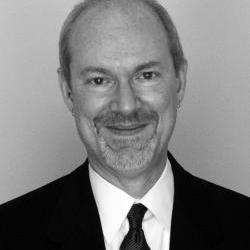Although the Choir of Clare College at the University of Cambridge is young compared to some its famous university siblings, the 25-voice mixed choir, founded in 1971, has achieved considerable acclaim for their recordings and live performances. John Rutter and Timothy Brown are former conductors; the current director, Graham Ross, is in his fourth year, and at 28 is already making an excellent mark on the choir. On Saturday evening, 14 December, the choir performed at Fairmount Presbyterian Church in Cleveland Heights as part of their North America tour in support of their latest album release, Veni Emmanuel (Harmonia Mundi), a collection of music for Advent based on the plainsong settings of the so-called Great “O” Antiphons, sung before the Magnificat at Vespers in the days leading up to Christmas. Each of the antiphons begins with the word “O” (O Sapentia; O Adonai, O Radix Jesse, etc.) Listeners will recognize the paraphrased antiphons as the stanzas of the carol “O Come, O Come Emmanuel”. The well-trained choir sang an intriguing mix of familiar and unfamiliar music and was a welcome relief from the common “lessons and carols” Christmas music format. The choir had purity of tone and impeccable intonation; they were, however, able to make thrilling, but well-blended, climaxes when called for.
Each section of the program was based on one of the antiphons, sometimes literally, as in Robert Ramsay’s motet O Sapentia. Other works reflected the sense of the antiphons. Herbert Howells’ The fear of the Lord was given a full-blooded performance with excellent organ accompaniment by organ scholar Peter Harrison. The music was a mix of familiar (Elizabeth Poston’s Jesus Christ the apple tree; Britten’s A Hymn to the Virgin and Howells’ A Spotless Rose) and unfamiliar (Arvo Pärt’s O Morgenstern and Stanley Vann’s There is a flow’r sprung of a tree).
The most remarkable and interesting work was performed early in the program, Roderick Williams’ O Adonai et Dux domus Israel. Williams is best known as a baritone singer, but his composition was mysterious and haunting. The choir was dispersed throughout the church, including in the rear organ loft. A solo very high soprano sings jagged chant-like phrases that are echoed by the sopranos. The other choral voices, in the church nave, chant the word “Adonai.” A solo baritone, in the front of the chancel, sings a florid, middle-eastern-tinged chant that refers to God appearing to Moses in the burning bush. The stratospheric soprano soloist was Cleveland native Gabrielle Haigh; baritone James Proctor sang his solo passionately. It was a triumph for the performers.
At the end of the first half, the audience joined the choir for a rousing sing of the hymn “Lo! He comes with clouds descending” in an arrangement by Timothy Brown, with an organ accompaniment that showed off the organist’s ability to match organ registrations with the meaning of the hymn text, on an almost phrase-by-phrase basis.
Would any Christmas season concert be complete without at least one work by John Rutter? In this case, the piece was newly-composed for the Clare College Choir, to Rutter’s own text, Christ is the morning star. It was vintage Rutter, melodic, with enough tricks to make it interesting for the choir, yet not to challenge the sensibilities of the most conservative listener. It is a lovely short work and should become a standard. The choir gave it a suitably lyrical performance.
Peter Warlock’s lovely Bethlehem Down was sung at a tempo at the verge of being too slow to maintain the musical line. Graham Ross contributed his own I sing of a maiden to the program. The phrases were short – austere with spiky, dissonant harmonies. The late John Tavener’s God is with us was a miscalculation as the penultimate work on the program: the young voices in the choir were tired, and bass soloist Christopher Preston-Bell did not have the clarion sound required to be heard over the choir in the central dramatic prophetic proclamation from Isaiah. Tavener’s flair for the dramatic did come through at the end of piece, with the organ’s unexpected full organ chords in a different key from the largely C major a cappella singing up to that point.
The final work on the announced program was the Magnificat from Howells’ setting of the evening canticles for Gloucester Cathedral. Audience then joined the choir for another hymn, “O Come, O Come Emmanuel,” with descant by Graham Ross. There were two encores: a lively arrangement of “Jingle Bells” and Ross’ setting of the German carol “Still, still, still”.


